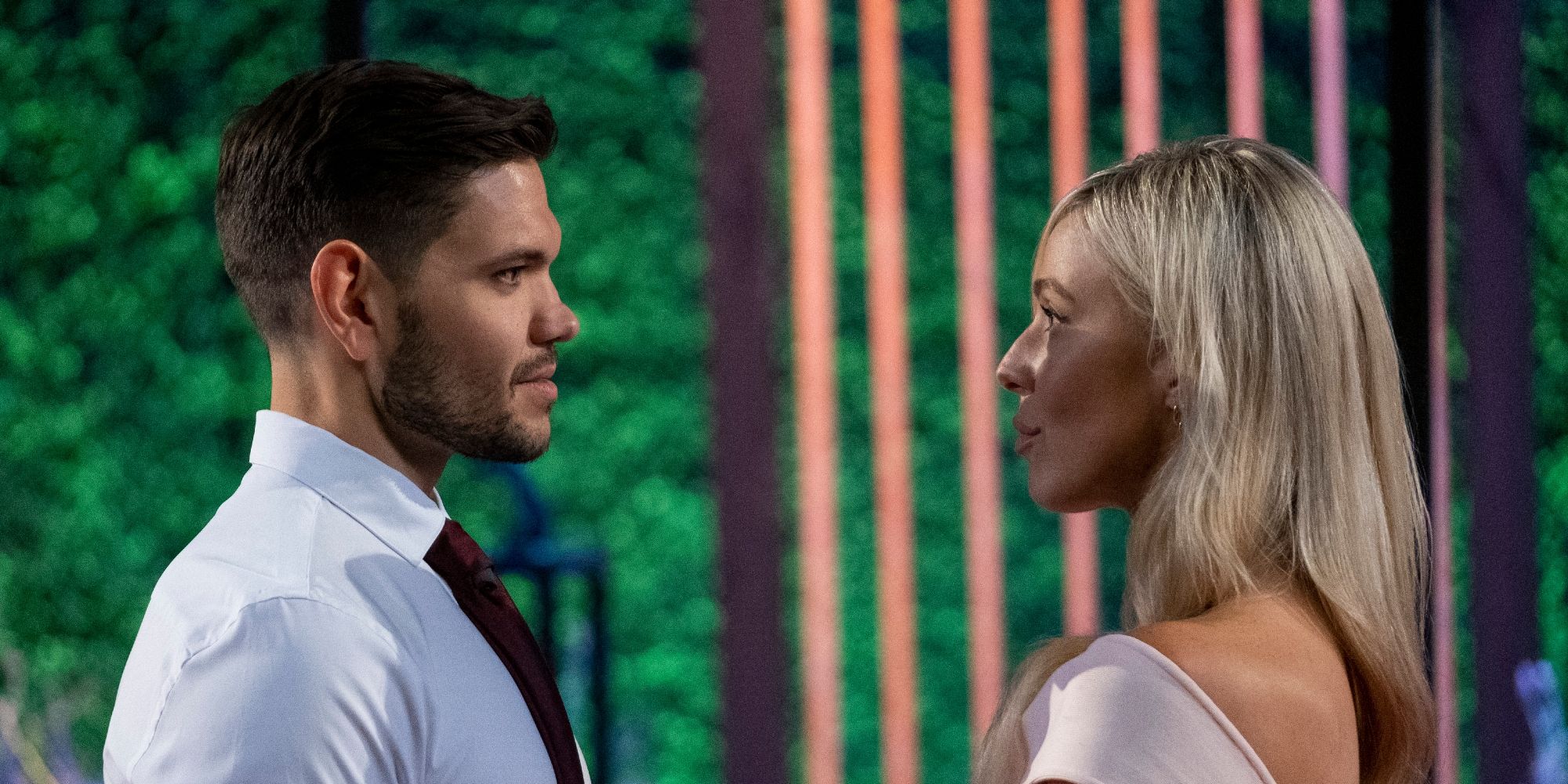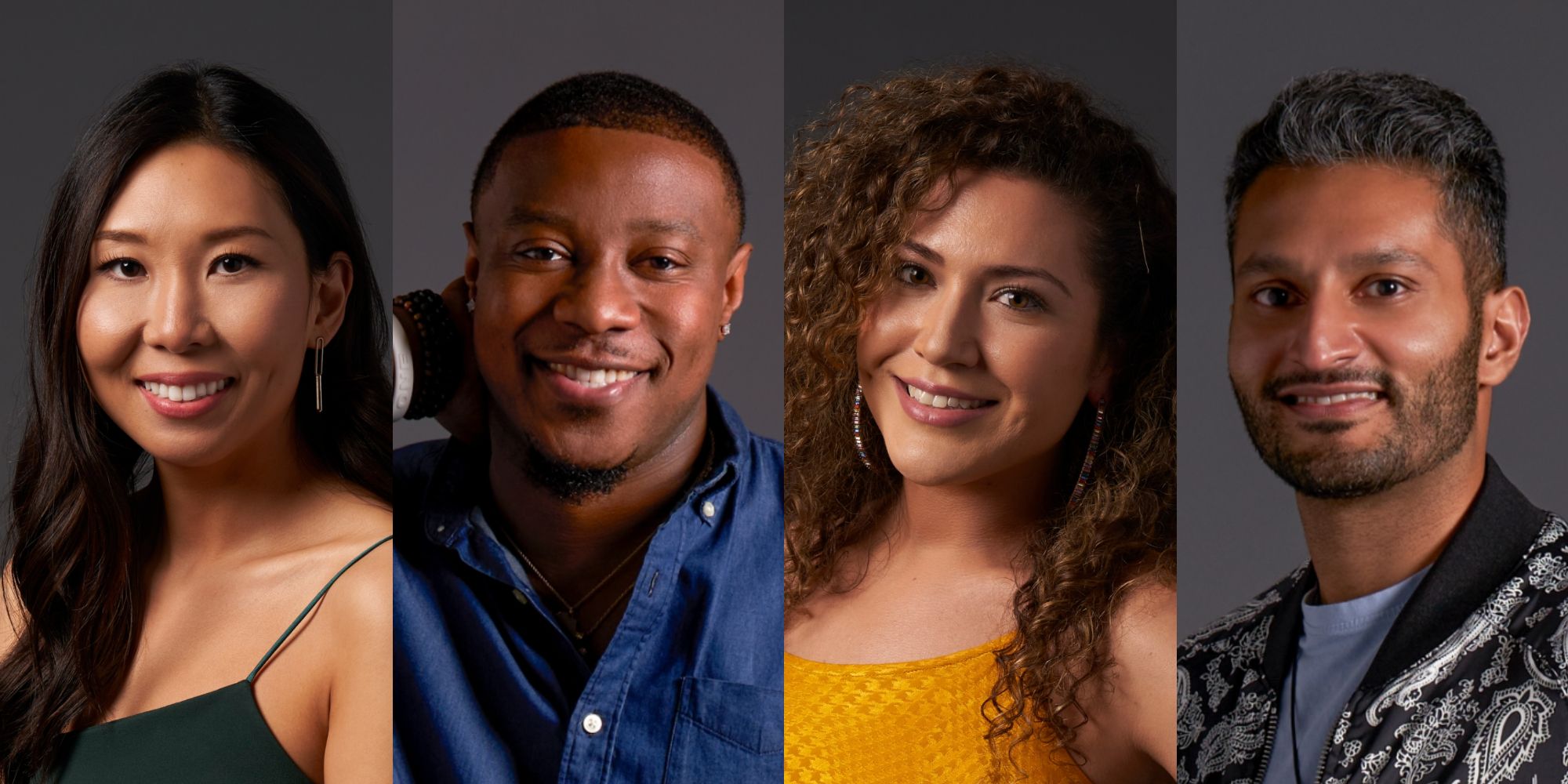At its core, Netflix's Love Is Blind tries to redefine the narrative of dating in the age of apps, trends, and social media goals, but despite the production plans, the human factor is still present. This means that the people that can be found on dating apps are the same people going through the unique process of dating in pods on Love Is Blind. Unfortunately, this also extends to the fact that there are some dating stereotypes that are represented on the hit Netflix reality TV show. Viewers are left wondering if there is any validity to the experiment.
Love Is Blind has showcased some potential for positive results in its experiment, with two still-married couples from its first season, but beyond anything else, it also highlights some of the worst traits and stereotypes that relate to current dating trends. As the contestants date and try to find their potential life partners in the pods, the priority for them seems to shift between establishing emotional compatibility and physical compatibility. The lines are easily blurred and the burden of that responsibility is not just on the contestants, as Love Is Blind actively plays a part in promoting the stereotypes expressed by the cast.
In Love Is Blind season 1, the contestants were able to establish mostly monogamous connections, but there was still the problem of choice, as in the case of (Matt) Barnett and Jessica Batten, who dated each other and other contestants at the same time. Though they didn't end up together, Jessica's reaction to seeing Mark, whose proposal she actually accepted, was definitely a representation of how an emotional connection will not make up for the absence of a physical connection in real life.
Similarly, Abhishek "Shake" Chatterjee from Love Is Blind season 2 was hyper-focused on finding a partner based on physical attributes, which is not something out of place in the real world. However, for a show that emphasizes the importance of putting the non-physical first, it highlights the presence of a stereotype regardless. While it is not inappropriate or distasteful for Love Is Blind contestants to express their preferences, viewers often expect a level of depth that doesn't transfer to real-life situations. However, the show's outcome has a bit of a shallow vibe that represents the status quo in the current state of the dating ecosystem. The cast members' preferences translate to realities that they expect their pod partners to match, and things don't always work out.
A highlight of the lineup for the Love Is Blind reality TV show is the couple's retreat in Mexico, but it is also one of the moments that depicts how much the show replicates the actual dynamics of establishing a connection or building a real-life relationship. Mark Cuevas from Love Is Blind season 1 was aware that he wasn't Jessica's first choice, but he was willing to use his emotional connection with her as an anchor to help their relationship. However, Jessica prioritized the physical connection (or lack thereof), and the trip to Mexico was ultimately the beginning of the end of their relationship.
Dating stereotypes seem to be the problem that Love Is Blind sets out to address. However, the unfolding of relationships on the show reveals that the dynamics are still present, and enforced in terms of how contestants see and interact with one another. Love Is Blind season 2's Abhishek and Deepti Vempati seem to be headed down a similar path but, there is no way for viewers to be certain of the outcome of their relationship until Love Is Blind season 2 wraps up with the new episodes.


